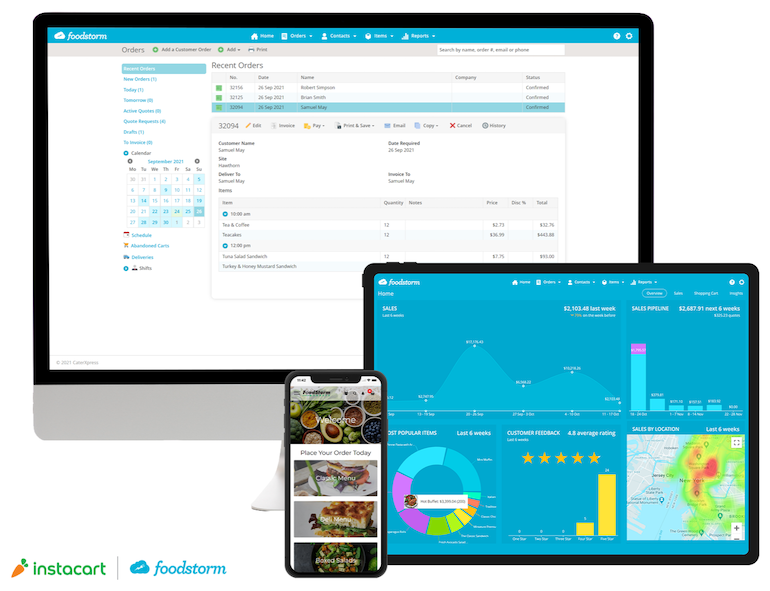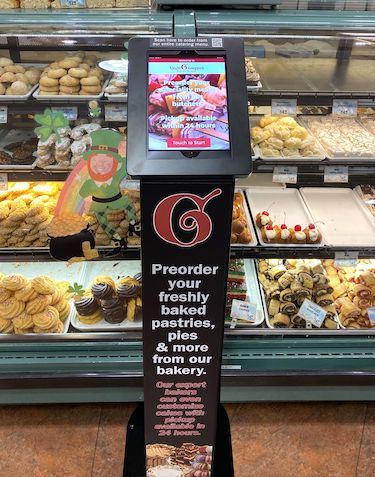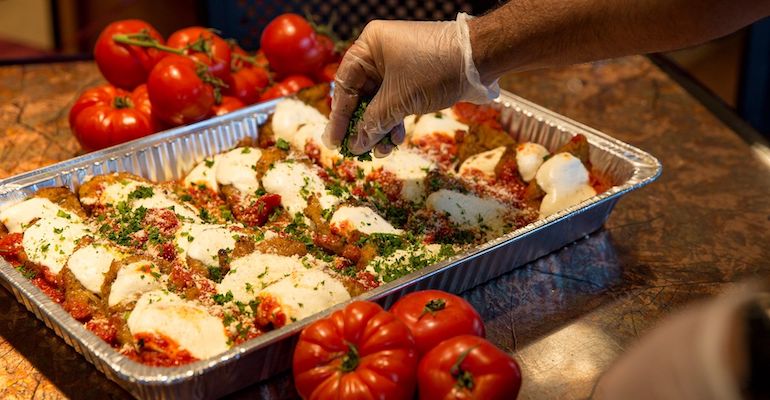Expanding further within the grocery channel, Instacart has purchased catering e-commerce software provider FoodStorm.
Financial terms of the acquisition, announced Thursday, weren’t disclosed. With the deal, San Francisco-based Instacart will add FoodStorm’s order management software-as-a-service (SaaS) to its suite of enterprise grocery e-commerce solutions, enabling Instacart retail partners to offer order-ahead catering services online. FoodStorm’s team, based in New York and in Melbourne, Australia, also will join Instacart.
An end-to-end solution, FoodStorm allows retailers to automate their entire catering and prepared foods operations — from ordering and production to payment and fulfillment — and manage it centrally. The platform fields orders over multiple channels — including online, phone and in-store kiosk — and integrates with a wide range of third-party systems, including point-of-sale solutions. Customer relationship management (CRM) functionality within FoodStorm also helps grocers gather feedback, market their offerings and leverage promotional tools.

FoodStorm’s platform enables grocers to automate their catering and prepared foods operations — from ordering and production to payment and fulfillment — and manage them centrally.
“Our goal is to help our retail partners increase their sales and ensure more of their customers’ everyday meals come from the grocery store. That’s why we’re excited to welcome the talented FoodStorm team to Instacart and integrate their end-to-end, order-ahead and catering platform into Instacart’s leading enterprise offering,” Mark Schaaf, chief technology officer at Instacart, said in a statement.
“For retailers, this new enterprise solution helps them bring even more of their inventory online, enhance their e-commerce capabilities, grow their business and meet the evolving needs of their customers,” he explained. “And for customers, this unlocks a healthier, more affordable alternative to restaurant delivery, creating an easier way for people to order prepared foods online directly from their favorite grocers.”
Instacart noted that order-ahead technology marks a big growth opportunity in the grocery arena. Customers who buy prepared foods and catering items such as hot and cold side dishes, cakes and sushi from Instacart retail partners have much larger baskets and shop more often, the company said, adding that order-ahead items and prepared foods are more profitable for retailers than traditional groceries like produce and packaged goods.
The FoodStorm acquisition dovetails with other recent grocery service expansions by Instacart. Earlier this week, Instacart announced Sunbasket as the first meal delivery company on its online marketplace. And last month, Instacart unveiled 24/7 delivery service for grocery and other retailers as well as the Convenience Hub, a new product experience on the Instacart Marketplace to streamline convenience shopping. Instacart also has launched Priority Delivery grocery service (as soon as 30 minutes) and is piloting micro-fulfillment solutions for grocery retailers with automation specialist Fabric.
“As a retailer enablement platform, Instacart is focused on growing our partners’ businesses by investing in innovative new technologies and services that deliver significant value to them and their customers,” according to Schaaf.
FoodStorm has noted that ordering prepared foods from grocery stores often entails a labor-intensive, inefficient process, requiring customers to call the store or place an order in-person.
Many grocers still manage catering and prepared foods orders using spreadsheets, paper order forms and sticky notes, even though those items are among their most profitable offerings, FoodStorm explained.
What’s more, the company said, retailers’ current e-commerce, inventory and point-of-sale platforms don’t provide granular support of catering and prepared foods operations, including managing production, ingredients, lead times and shelf life. And for large supermarket chains, these offerings can extend across multiple stores and departments, while orders can come in via online, kiosk, phone and email channels.
 FoodStorm’s system, shown here at an Uncle Giuseppe’s store, can field catering and prepared foods orders from online, kiosk, phone and email channels. (Photo courtesy of FoodStorm)
FoodStorm’s system, shown here at an Uncle Giuseppe’s store, can field catering and prepared foods orders from online, kiosk, phone and email channels. (Photo courtesy of FoodStorm)
“I’m incredibly proud of what the FoodStorm team has achieved for our partners. We’ve developed market-leading software that makes it easier for grocers to execute on prepared food and catering orders more efficiently and track everything from one central location,” FoodStorm CEO Rob Hill stated.
“This is a huge growth opportunity for grocers, and we’ve seen increased demand for our products as more customers are searching for seamless online and in-store ordering capabilities,” he added. “Grocery is an incredibly complex retail category, making the need for enterprise-grade solutions like FoodStorm and Instacart critical to the long-term success of the industry we all rely on to put food on our tables. We’re excited about this next chapter as we join the Instacart team and create new ways for retailers to serve the ever-changing needs of their businesses and customers.”
Founded 14 years ago, FoodStorm now processes more than $1.5 billion in catering and prepared food orders for grocers, caterers and corporate dining operations at thousands of sites worldwide. The company’s platform already is used by some of Instacart’s current grocery retail partners, such as Balducci’s and Kings Food Markets (part of Albertsons Cos.), Bi-Rite Market, Mollie Stone’s Markets, Uncle Giuseppe’s and Roche Brothers.
Overall, Instacart partners with more than 600 North American retailers — including 175 local, regional and national grocers— and delivers from almost 55,000 stores in over 5,500 cities in the United States and Canada. Its online shopping and delivery service is accessible to more than 85% of U.S. households and 80% of Canadian households.


